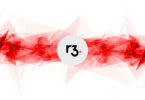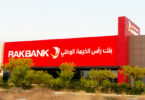R3’s Corda is one of the leading open source business blockchain technologies. Today they debuted the first version of Corda Enterprise. At the same time, Accenture says they “believe Corda will emerge as a true market leader”.
In the last few months, several companies launched services using Corda. Finastra was the first with their syndicated loan solution; EY and Guardtime worked with Maersk to launch a marine insurance platform; TradeIX is working with numerous banks for trade finance and launched an application with DHL.
Corda Enterprise extends open-source Corda, so it’s worth having a brief recap of its benefits.
Design benefits
One of open-source Corda’s biggest draws relates to permissions and confidentiality. With a conventional blockchain like Ethereum, every network node or server stores all the transactions. You can’t imagine a bank being happy to have their competitor storing private transactions, even if they’re encrypted.
So with Corda, the only companies that store the transactions are those that participate in a deal. Your competitor neither stores nor sees your transactions unless they’re a party to the deal. So technically Corda is not a blockchain, it’s a distributed ledger technology (DLT).
Competitor Hyperledger Fabric also addresses confidentiality but with the use of channels which are like mini blockchains. There are a couple of issues with this design including that you need to create a separate channel for each relationship. SWIFT found for them it would result in over 100,000 channels and wasn’t practical. But the other challenge is by creating mini blockchains you silo the transaction which makes it harder to share if you want to.
In contrast, Corda’s design doesn’t just resolve the confidentiality issue. It also helps with scalability. Unlike a blockchain that records every transaction on every server, with Corda you only record your own deals.
Corda’s firewall
The most critical addition in Corda Enterprise is the Blockchain Application Firewall. The essence of a blockchain is to connect with other servers in a network. That’s a security challenge for any enterprise.
Even if the network is a private permissioned network, it involves connecting outside your company’s internal network.
A bank isn’t going to have a sensitive blockchain node sitting on the public internet. Alternatively, if they put the server inside their secure network, they don’t want to allow arbitrary machines to connect.
For conventional internet applications, you have a Web Application Firewall which acts a little like a real-world sentry and inspects all data coming in and out, only allowing the authorized ones through. Corda’s Blockchain Application Firewall is the blockchain equivalent. So it permits incoming connections only from Corda nodes and just where it can confirm the identity is legitimate.
Other differences
Blockchains like Ethereum don’t have a relational database by design, but that makes querying and generating reports more painful. Open-source Corda works with the h2 relational database. Never heard of h2? You’re not the only one, though it’s not too different to other relational databases. So Corda Enterprise introduces support for Oracle and Microsoft’s SQL Server, leveraging existing skillsets.
Top of the list of any enterprise solution is 24/7 support, and Enterprise Corda will also have predictable release schedules.
The Enterprise version is fully interoperable with the open source version. That means not every company participating in a project has to pay for Enterprise, and it also makes it easier to test internally.
Other extras included are: performance and availability monitoring, enhanced security, high-availability, disaster-recovery and high-performance modes.
With the open source version of Corda, you can monitor the state of your own nodes. But with a distributed network you want to be proactively aware of the state of other servers hosted by the companies with whom you trade. If network monitoring doesn’t appear in the open source version, perhaps some helpful developers might do it themselves.
Accenture picks winner
It looks like Accenture is going all in on Corda with this quote below from John Velissarios, Managing Director, Global Blockchain Technology Lead, at Accenture:
“Corda Enterprise marks the beginning of a new phase for the blockchain industry that will allow businesses to build enterprise-grade applications securely using cutting-edge technology. As blockchain becomes increasingly mainstream, we believe Corda will emerge as a true market leader across the financial industry and beyond.”
Just yesterday the RiskBlock Alliance for insurance officially confirmed their switch to Enterprise Corda and appointment of Accenture as Lead Framework Architect.
Accenture is also using Corda working on Project Jasper with the Bank of Canada and TMX Stock Exchange for instant equity settlement.
R3’s CTO
Richard Gendal Brown, CTO at R3, commented in a statement: “Traditional permissionless blockchain platforms, in which all data is shared with all parties, have issues around privacy, scalability and interoperability that render them largely unsuited for global business.”
“This is the problem Corda was designed to solve and it is gaining adoption at a rapid pace across a range of industries. However many enterprises – especially larger ones – face unique technical constraints.”
“Corda Enterprise fine tunes Corda for these firms so that they can adopt blockchain technology in a way that is straightforward and natural. The launch of the platform is a watershed moment for business blockchain technology.”






